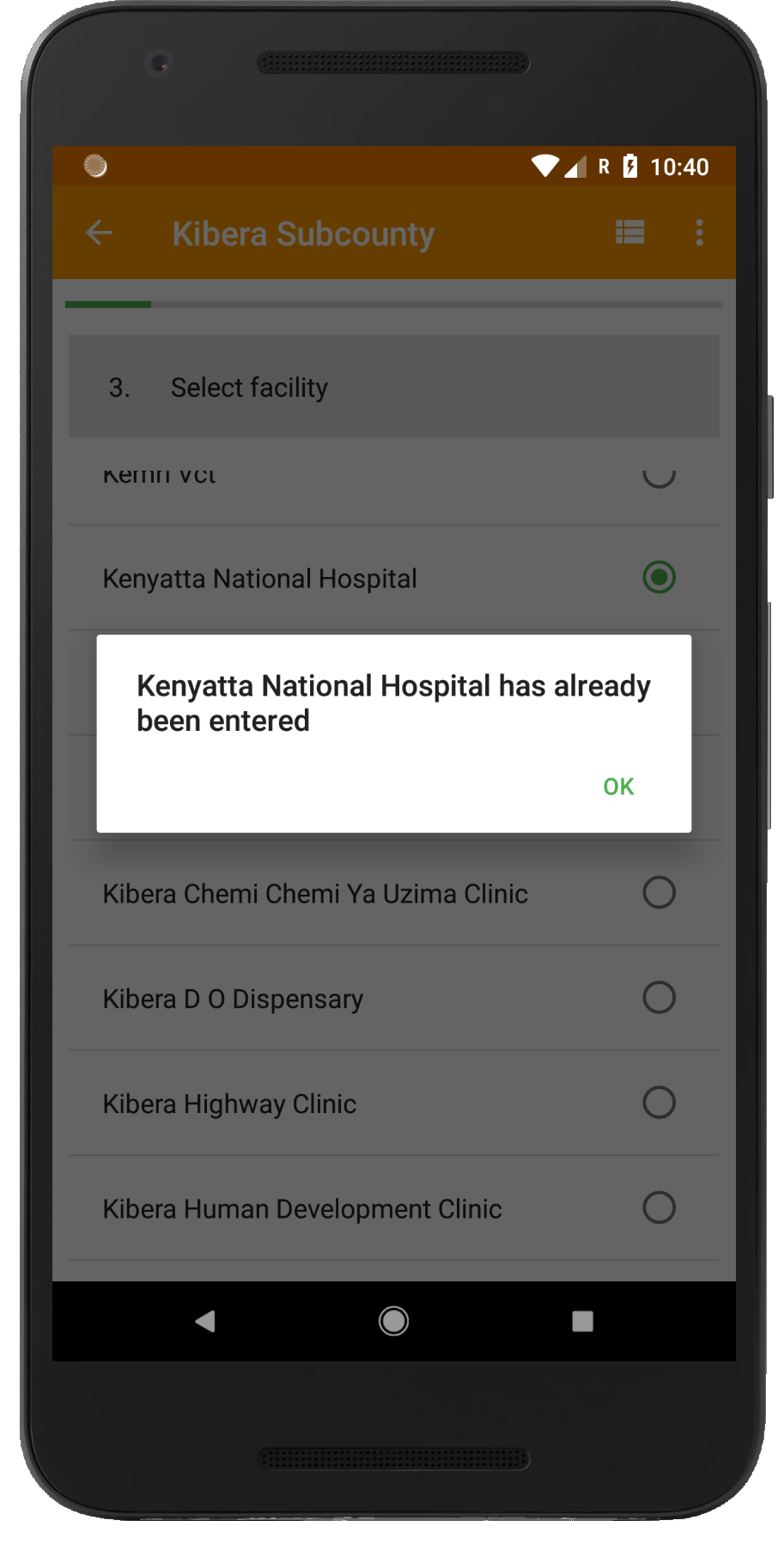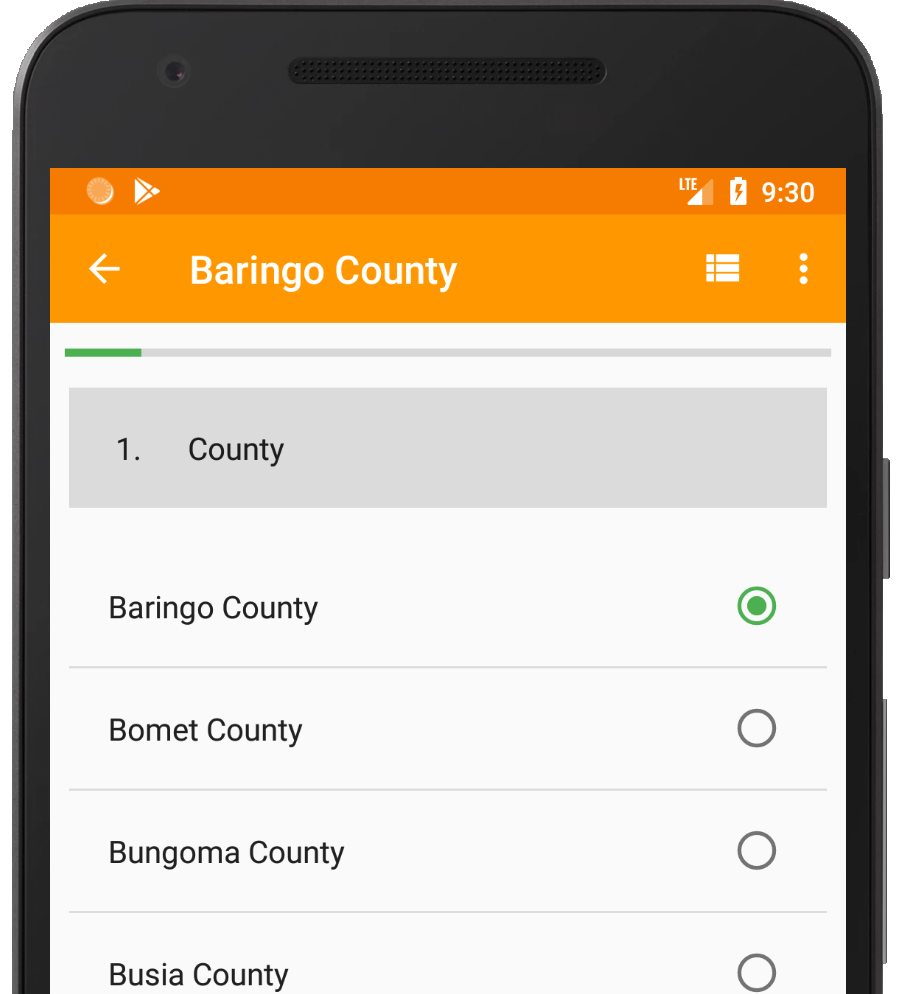[dropcap]I[/dropcap]t is not easy to save up money to start a business. Indeed, it can sometimes hurt to realise that it is lack of capital or savings that is holding the key to big business. But Gitahi Ng’ang’a is one entrepreneur who found his way around the challenges.
He quit a plum job to run Hoji, a data management solutions provider that has the potential to change the way development organizations work. He says Hoji, which is run by Hoji Limited, was created to empower organizations to collect better quality data more efficiently.
Although he spent less than Sh100, 000 to set up the company, quite amazing is how he took advantage of internet and a few good mentors before he jumped into the ring – he took a 6-week course in computer programming back in 2006 and then taught himself everything else he currently knows about software engineering. He says that it was in April 2016 when they signed up one customer.
“We provide technology services for mobile data collection and analysis solutions for developed organisations,” he says. “It just happens that we needed a software platform to do that, so we created one. Our value proposition goes beyond the software. A big part of it is in our expertise in data management, analysis, security and so on,” he says.
A statistician by training with a bachelor’s degree in the subject from the University of Nairobi, he is hoping to spur tech revolution. Incidentally, when he graduated, he was a far better software developer than he was a statistician. Soon after graduation, he was hired as a junior software developer at KEMRI/CDC before he joined I-TECH Kenya, and climbed the ladder to lead the company’s software development department.
Mr Ng’ang’a started developing Hoji in April 2014, and it took him two years to get to a version that could be deployed. Memories of how he mostly worked at night and early in the morning because he had a full-time job at the time are yet to slip his mind.
Defining the big idea in his brand, he points out that when Hoji, which is Swahili word for ‘interview’ started, the goal was to mainly provide mobile technology for household surveys. It is all of interviewing respondents, like say, what will happen in August during the national census. Good even, he didn’t need any capital for the first 18 months. All he did during that time was developing the technology, which only calls for a computer and a desk, and he had both already. At the end of that period, he recruited his business partner.
“No office or anything fancy. Just a sheet of paper that said we were a company,” he says.
No sooner had their first customer came through than they realised that they had such old mobile devices that they couldn’t work with the software. Because they were desperate for the business, it was time to think out of the box. They bought 20 tablets for about Sh200, 000 and lent them to the client.
“Thankfully, we made more than that in service fees – and still retained the devices afterwards,” he says.
What also makes Hoji brand more attractive is the fact that its target market is NGOs, government agencies and research consultants. This lot delve into important work for citizens like running the majority of development programs, covering areas like health, education, agriculture, sanitation, infrastructure and so on.
His company helps them automate surveys, monitoring and evaluation, and data quality assessments. This way, they are able to make smart and timely decisions for their programmes.
“Hoji comes in to help them use data to maximize the impact of their work,” says Ng’ang’a. “In that sense, we do have something for Kenyans. And not just Kenyans, we have also supported projects in 5 other African countries. So the name has stuck, and our customers like it.”
The firm’s technology and business model is built for e-commerce, an indication that people across the world can download, and set it up for themselves, then pay online. Many technology companies do this through a delivery model called “Software as a Service”.
Further, the high tech company is in a very niche market segment. It is (probably) the only indigenous company that’s currently providing mobile data collection and analysis technology in Africa.

The company is competing with foreign companies from the US and Europe with the few that are founded here generally owned and operated by foreigners. In terms of other homegrown technology solutions, most of the popular ones are in agriculture and finance, people abreast with the industry are green about any with which Hoji is in direct competition with.
Though most of his clients are still old-fashioned, Mr Ng’ang’a and his team of seven (he expects to grow to 10 by December this year) have tried offering Hoji as a true off-the-shelf service and realised the market isn’t ready for that yet.
“People still prefer to see you and to have you support them directly. So that’s what we do. We’re still confident that we shall convert part of the market to self-service. It will take time, but we’ll get there,” he says.
[Also see: Former tout carves her niche in hair]
“We still service each one of them directly, so we simply ask them to pay using regular methods like cheques and direct transfers. We are slowly working towards signing up some self-service customers. It will take time, but when it happens, we’ll offer online payment options.”
Data collection using consumer-grade mobile devices has been around for about 10 years now, an indication that it is a fairly mature technology. The next level, experts say, is solutions that integrate data collection with other important functions like data storage, processing, analysis and integration with other information sources.
This is where the likes of Mr Ng’ang’a are trying to take the industry. To him, organisations want to be able to move from data collection to decision making in one step. Mobile data collection alone does not get them there.
His is a story that can motivate young people at a time when jobs are scarce, and key economic sectors not performing as expected. But what is the uptake of his solution like? What are customers saying? What will really speed up the growth of an app like Hoji in the country?
“The uptake has been extremely encouraging. We have successfully executed close to 50 projects now, including some that are countrywide in scope. Outside the country, we have done projects in Somalia, South Sudan, Tanzania, Uganda and Zambia. We also hope more government agencies can take up our services. There is a lot we can help them improve, in terms of how they gather and use data. That’s something, isn’t it?” he quips.

As for growth, the company recently recruited a sales and marketing team to help promote its services. Of late, his fresh team has been trying to do product demos every week. Add the more than 100 customer reviews on Play Store, averaging 4.7 out of 5 stars and you’ll see why Ng’ang’a’s eyes are set on big things.
Like with everything else, there are challenges. The main one is discovering the right problem to solve, the one for which you have sufficient domain expertise to address and whose economics make business sense. There are many apps that are simply solutions in search of a problem. Mr Nga’ng’a argues that that is the wrong recipe, adding that good developers are also hard to find, and when you find them they are expensive.
In addition, it takes patience to develop technology that people would want to use especially going by the fact that today’s market segment has very complex dynamics. In Hoji Limited’s case for example, sometimes there are stringent donor restrictions that prevent projects from adopting Hoji technology. There are also competing solutions available free of charge. It takes a lot to beat them.
Read: Uhuru bans single-use plastic bags in protected areas
“It’s better to think of one’s self as a solution provider and as a business person first, and not so much as an app developer. I actually cringe a little every time someone calls me an app developer. I am fortunate to have spent my entire employment career building data systems for development organisations. So I am intimately familiar with the problem we are solving,” says Ng’ang’a.












Leave a comment